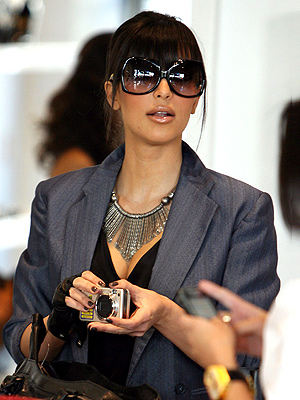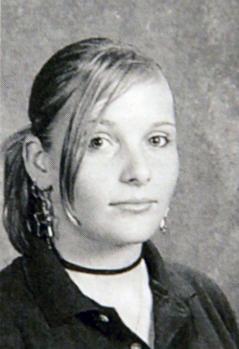|
|
|---|
Thursday, September 2, 2010
Robert Toshio Kuroda
Robert Toshio Kuroda was born on November 8, 1922, in Honolulu, Hawaii. He was the sixth of seven sons of Toyoichi and Sekino Kuroda. He and his three brothers -- Ronald, Wallace and Joe -- all volunteered and wanted to fight in the war to prove their loyalty.
Former state Sen. Joseph "Jumbo Joe" Kuroda said his brother Robert, a 1940 Farrington High School graduate, had just qualified as an electrician from Honolulu Vocational School at the beginning of World War II. Robert applied for a job at Pearl Harbor, but was rejected because of his race and also was classified as an "enemy alien" by the national draft board.
"So he went to work for Aiea Plantation," Joe Kuroda said, but when the call finally went out for volunteers in 1943, Robert Kuroda responded, as did other members of his family.
"In February 1943, Robert asked his father to sign his volunteer enlistment paper when Americans of Japanese ancestry were finally permitted to serve our country," Joe Kuroda recalled. "Dad wouldn't sign, saying Robert already had a brother ready to enter combat. Robert turned to mother for help, and when mother asked, 'Why do you want to go so badly?' Robert answered, 'Because when I return from the war, Pearl Harbor Navy will have to hire me. I am an American.'"
Before he left for the war, Robert Kuroda had set aside one-third of his Army paychecks to pay for the education of the youngest brother, Joe, who would become a colonel in the Army Reserve, an educator and serve in the state Senate for 16 years.
On October 20, 1944, Robert Kuroda was serving as a staff sergeant in the 442nd Regimental Combat Team. On that day, near Bruyères, France, he single-handedly attacked two enemy machine gun emplacements before being killed by a sniper while trying to take out another German machine-gun nest. For these actions, he was posthumously awarded the Army's second-highest decoration, the Distinguished Service Cross.
A 1990s review of service records for Asian Americans who received the Distinguished Service Cross during World War II led to Robert Kuroda's award being upgraded to the Medal of Honor. In a ceremony at the White House on June 21, 2000, his surviving family was presented with his Medal of Honor by President Bill Clinton.
21 other Asian Americans also received the medal during the ceremony, all but seven of them posthumously.
Staff Sergeant Robert Toshio Kuroda, at the age of 21 at his death, was buried at the National Memorial Cemetery of the Pacific in Honolulu, Hawaii. Plot: Section D, Grave 92.
Joe Kuroda and Ronald Kuroda at their brother Robert T. Kuroda's headstone at the National Memorial Cemetery of the Pacific.
Medal Of Honor
The President of the United States of America, authorized by Act of Congress, March 3, 1863, has awarded in the name of The Congress the Medal of Honor to
STAFF SERGEANT
ROBERT TOSHIO KURODA
UNITED STATES ARMY
For conspicuous gallantry and intrepidity at the risk of his life above and beyond the call of duty:
Rank and organization:
Staff Sergeant
U.S. Army,
442nd Regimental Combat Team
2nd Battalion, Company H
Stationed:
Camp Shelby,
MS; France
Unit responsibility:
Infantry
Personal responsibility:
Squad leader
Major battles:
Rhineland Campaign
Place and date:
near Bruyères,
France
October 20, 1944
Entered service at:
Honolulu, Hawaii
Birth:
November 8, 1922,
Aiea, Oahu, Hawaii
Date of issue:
June 21, 2000
Citation:
Staff Sergeant Robert T. Kuroda distinguished himself by extraordinary heroism in action, on 20 October 1944, near Bruyeres, France. Leading his men in an advance to destroy snipers and machine gun nests, Staff Sergeant Kuroda encountered heavy fire from enemy soldiers occupying a heavily wooded slope. Unable to pinpoint the hostile machine gun, he boldly made his way through heavy fire to the crest of the ridge. Once he located the machine gun, Staff Sergeant Kuroda advanced to a point within ten yards of the nest and killed three enemy gunners with grenades. He then fired clip after clip of rifle ammunition, killing or wounding at least three of the enemy. As he expended the last of his ammunition, he observed that an American officer had been struck by a burst of fire from a hostile machine gun located on an adjacent hill. Rushing to the officer's assistance, he found that the officer had been killed. Picking up the officer's submachine gun, Staff Sergeant Kuroda advanced through continuous fire toward a second machine gun emplacement and destroyed the position. As he turned to fire upon additional enemy soldiers, he was killed by a sniper. Staff Sergeant Kuroda's courageous actions and indomitable fighting spirit ensured the destruction of enemy resistance in the sector.
Staff Sergeant Kuroda's extraordinary heroism and devotion to duty are in keeping with the highest raditions of military service and reflect great credit on him, his unit, and the United States Army.
*****
At the White House, Ronald and Joe Kuroda accepted the Medal of Honor for their brother. Ronald Kuroda, who fought as a member of B Company, 100th Battalion, also was awarded the Distinguished Service Cross.
Fort DeRussy was the home of the 100th Infantry Battalion, 442nd Infantry Regiment. Kuroda Field honors the memory of those brave soldiers.
Among the World War II heroes, 12 were from Hawaii -- five of whom still are living. Twenty of the honorees were members of the famed 100th Battalion and 442nd Regimental Combat Team, including Hawaii senior U.S. Sen. Daniel Inouye. Both military units were composed mainly of nisei, second-generation Japanese Americans, and became the most highly decorated unit for their size in World War II.
Betty Hill, sister of Robert Kuroda, christened the vessel together with retired Gen. John G. Coburn, chairman and CEO of VT Systems, Inc., which built the ship.
Joe Kuroda, his sister, Betty Hill, and other relatives attended the christening ceremony of the Kuroda, with Hill breaking the traditional bottle of champagne on the ship's bow. Also present were members of the Army Reserve's nearly year-old 548th Transportation Detachment, which will operate the boat.
The 314-foot support vessel Kuroda (LSV-7) will be the Army Reserve's 9th Regional Support Command's first ship and will be berthed on the Hickam Air Force Base side of Pearl Harbor at Bishop Point. It will join two other active-duty Army support vessels, Clinger and Gross, at new piers and facilities now under construction. There are now six support vessel in the Army's fleet, with three more being built or planned.
Kuroda's crew of eight warrant officers and twenty-four enlisted soldiers are all reservists.
Speaking for his family at the May christening ceremony, Joe Kuroda said: "Five-feet-11-inch Robert Kuroda didn't make it back, but the USAV Robert T. Kuroda will be at Pearl Harbor to make his point."
0 Comments:
Subscribe to:
Post Comments (Atom)




























